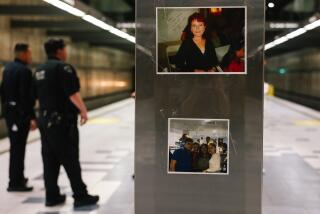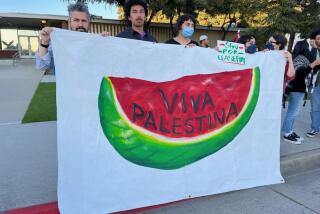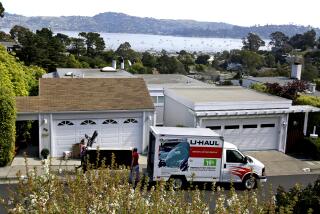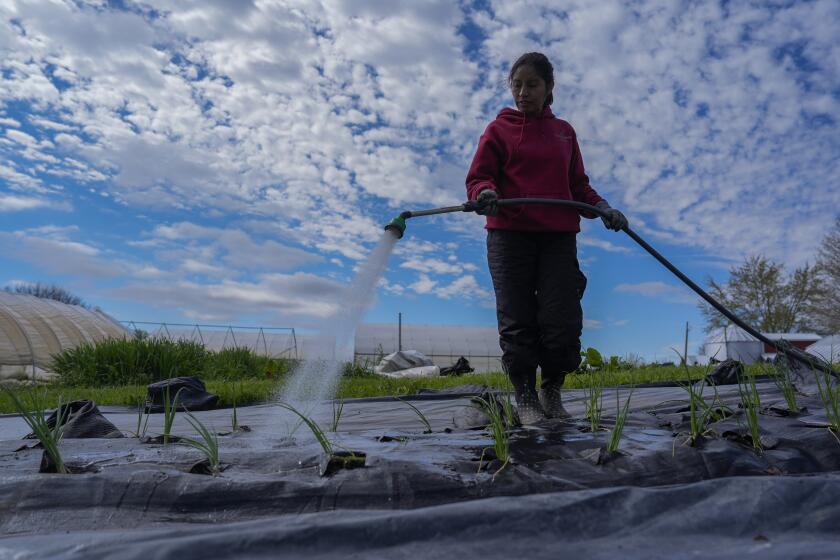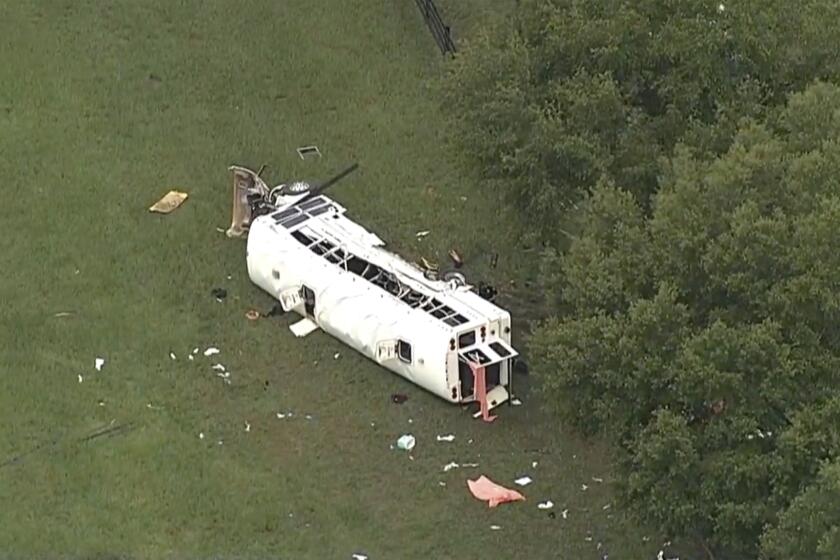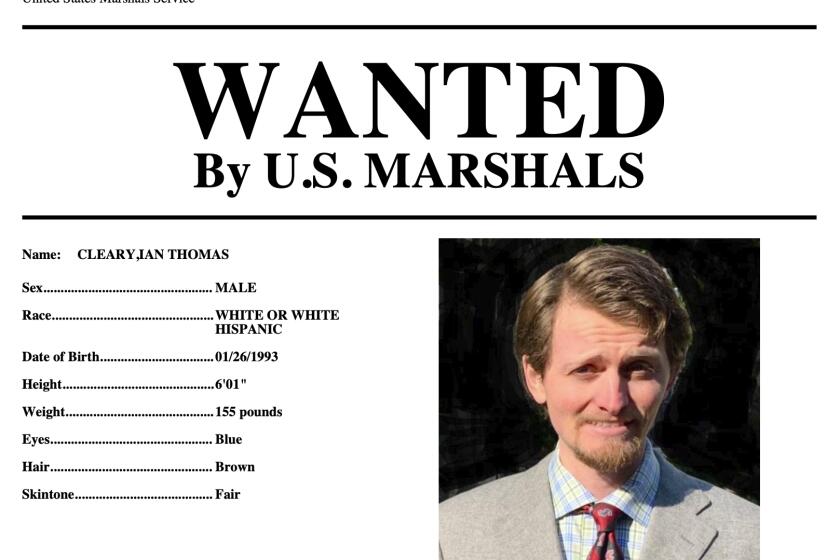Ex-New Yorkers Cling to Memories
For New Yorkers living in Southern California, being on the other side of the country is, in the words of recent West Hollywood transplant Greg Heyman, like being on the wrong side of the fence.
“From now on, one of the things that identifies New Yorkers will be the experience of having been there in this crisis,” said Heyman, a Manhattan native. “And I don’t have it.”
Like anyone else in the nation, Empire State expatriates have grappled with horror, fear and anger in the past week. But the attacks on the town that even those who left decades ago call “The City” have also sparked feelings that could only burn in the hearts of New Yorkers--a nagging fear that their city has changed without them.
That fear, combined with intense loyalty to their natal metropolis, sent a stream of former Big Apple residents to Heyman’s apartment last week for a spontaneous group hangout. It flooded local New York-style pizzerias, which had to hire more staff for the workload. It made Corona resident and retired New York City police officer Tony Palermo newly proud of his NUYRKPD license plate.
And it caused onetime New Yorkers to cling to memories of a sophisticated and confident city that they knew was geographically distant but now realize is separated from California by more than 3,000 miles.
“I ask my friends from New York, ‘We have to talk about our New York; is it still going to be our New York?’ ” said Nancy Lemann, a novelist and New Yorker who relocated to San Diego.
Peter Buffa, a former mayor of Costa Mesa, grew up in the Bronx and sold programs at Yankee Stadium as a youth. “You are never not a New Yorker,” he said. “You certainly feel like the world has changed, that those symbols, which are very important, that help us define ourselves, are gone. They were big, bold, brash symbols.”
The Sept. 11 attack sent transplanted New Yorkers scrambling to their telephones to reach loved ones back home. Then the internal tug-of-war began.
Lemann was born in New Orleans but considers herself a New Yorker after spending 15 years there. She has set two of her novels in that city. But she has had second thoughts about flying to the city for a long-scheduled social trip next week.
“You don’t know whether to feel lucky or unlucky to be there,” Lemann said. On the one hand, “You feel helpless because you’re not there.”
On the other hand, she added, “this backwater ‘burb San Diego looks lovely to me for the first time.”
Bensonhurst native Fred Kahn has similar conflicts. “You don’t want to see the horror,” said Kahn, who lives among other New Yorkers in a Sherman Oaks apartment complex. But, he said, “if I could afford it, I’d go back--to do something.”
George Irving has no such ambivalence. A lifelong New Yorker until he moved to Mission Viejo six years ago, Irving is already making plane reservations eastward.
“For 10 years, I took the PATH train and walked through to 1 Liberty Plaza and other parts of downtown,” he said. “I want to see for myself.”
Los Angeles Fire Department Capt. Jack Reiss was at his adopted city’s command center on the morning of Sept. 11, watching the twin icons of his native city crumble. He knew his department was sending crews to help, but assumed that, because he was not a disaster specialist, he would not be on the roster. Then his chief turned to Reiss and asked whether he wanted to go.
“In a New York minute,” Reiss, a native of the Brighton Beach neighborhood, responded in his thick Brooklynese.
It took a little longer--three days, with airspace closed for days after the attack--but Reiss made it to Manhattan with more than 100 other Los Angeles firefighters, many of whom used to rib him about his New York accent.
“Now I’ve got 100 Californians with me, and I’ve never been prouder in my life of how this city is embracing these people,” said Reiss from midtown, where strangers were offering water, food and laundry services to out-of-towners.
Back in Los Angeles, Reiss’ childhood friend Scott Oppenheimer bit into a calzone at Vito’s Pizzeria on Vermont Avenue, a beacon to native New Yorkers that saw such an influx of crying and angry customers last week that its owner gave away free pizzas.
Oppenheimer, who moved to Los Angeles in 1977, has not visited his hometown in eight years and felt settled here. So he was not ready for the force of the emotions that left him on the verge of tears. As was his custom, he surrounded himself with New Yorkers, as during his visit to Vito’s. But he couldn’t call Reiss.
“Talking to a New Yorker, it’s like talking to your brother about a family tragedy,” said Oppenheimer, a registered nurse and mental health counselor for Los Angeles County. “You can’t talk to them because it’s too close.
“I don’t want to be there,” he said of New York. “I’ve been detaching myself from New York, but when something like this happens . . . you realize you’re infinitely connected to New York. There’s a part of you, your heart and soul, that’s connected to this place. You don’t have to go back there. You’re still a New Yorker.”
More to Read
Start your day right
Sign up for Essential California for news, features and recommendations from the L.A. Times and beyond in your inbox six days a week.
You may occasionally receive promotional content from the Los Angeles Times.
